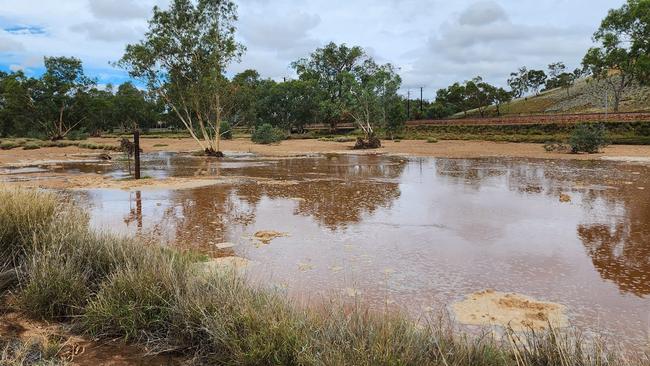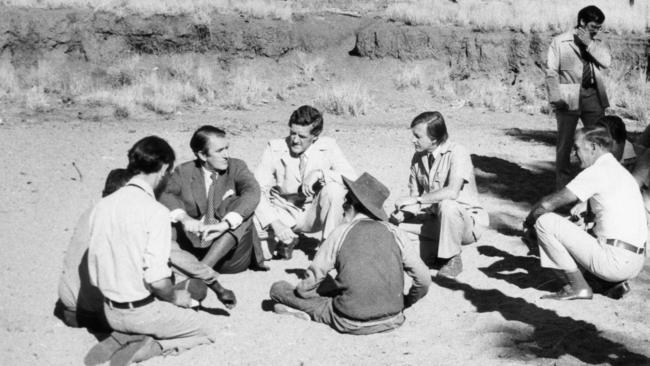Lhere Artepe strategy: River health obligations draining council dry, but no reinforcements to be found
Alice Springs Town Council is desperate for an Indigenous ranger program to help manage its river health obligations under a multi-agency plan, but the chance has been lost and may not return for years.

Alice Springs
Don't miss out on the headlines from Alice Springs. Followed categories will be added to My News.
Alice Springs Town Council is desperate for an Indigenous ranger program to help manage its river health obligations under a multi-agency plan established in 2019, but the chance has been lost and may not return for a decade or more.
Earlier this year, the council, wrote to Environment Minister Kate Worden urging the Northern Territory government do whatever it can to advance the objective of establishing a Mparntwe Indigenous ranger program.
Getting such a program off the ground was part of the Lhere Mparntwe Management Strategy 2019, which aims to improve the health of the Todd and Charles rivers as “widely recognised as iconic symbols of Alice Springs with tangible cultural, environmental, social and economic values,” but in the five years since, there has been little movement on an IRP.
It appears that window of opportunity has shut, possibly for a decade or more, with the Commonwealth’s $349m IRP Expansion Round One grant program, established to fund up to 550 full-time equivalent positions Australia-wide, now closed.
No application was received from Alice Springs.
“This is the first open competitive grant opportunity for new ranger organisations to join the IRP in over 10 years,” a spokesman for the National Indigenous Australians Agency said.

Lhere Artepe Aboriginal Corporation, whose support for an IRP is critical to getting the initiative off the ground, was unable to be reached despite numerous calls and emails.
The corporation is undergoing a period of flux after the resignation of its chief executive Graeme Smith to take the reins at Imparja Television.
Nor did the Northern Territory government indicate that an Mparntwe IRP was particularly urgent on its list of priorities.
A Department of Environment, Parks and Water Security spokeswoman failed to answer detailed questions, instead responding that an IRP “would need approval of and would be core funded by the Commonwealth through NIAA”.
Alice Springs Town Council chief executive Andrew Wilsmore described the Mparntwe IRP as a “key action” of the Lhere Mparntwe strategy.

“Lhere Mparntwe, from Schwartz Crescent to Heavitree Gap, was designated a sacred site in 2020, recognising its importance as a place of deep spiritual significance.
“This is a joint strategy [in which] all partners, including ASTC, believe an Indigenous ranger program would significantly help.”
In a report presented to council at its January 23 ordinary meeting, it was found that the council would need to find an extra $250,000 each financial year to put on additional staff to manage the 140ha of land it is responsible for under the strategy.
“During the development of the [Lhere Mparntwe] strategy, reports provided by officers raised concerns about the council’s resourcing to undertake the strategy,” the report’s author said.
“It appears many of these concerns were not addressed and additional resources were not funded to adequately met the objectives of the plan.”
The report recommended council “investigate resigning its trusteeship of the rivers in favour of the Northern Territory government taking over responsibility of the whole river corridor,” in order to better husband the council’s scant resources.





